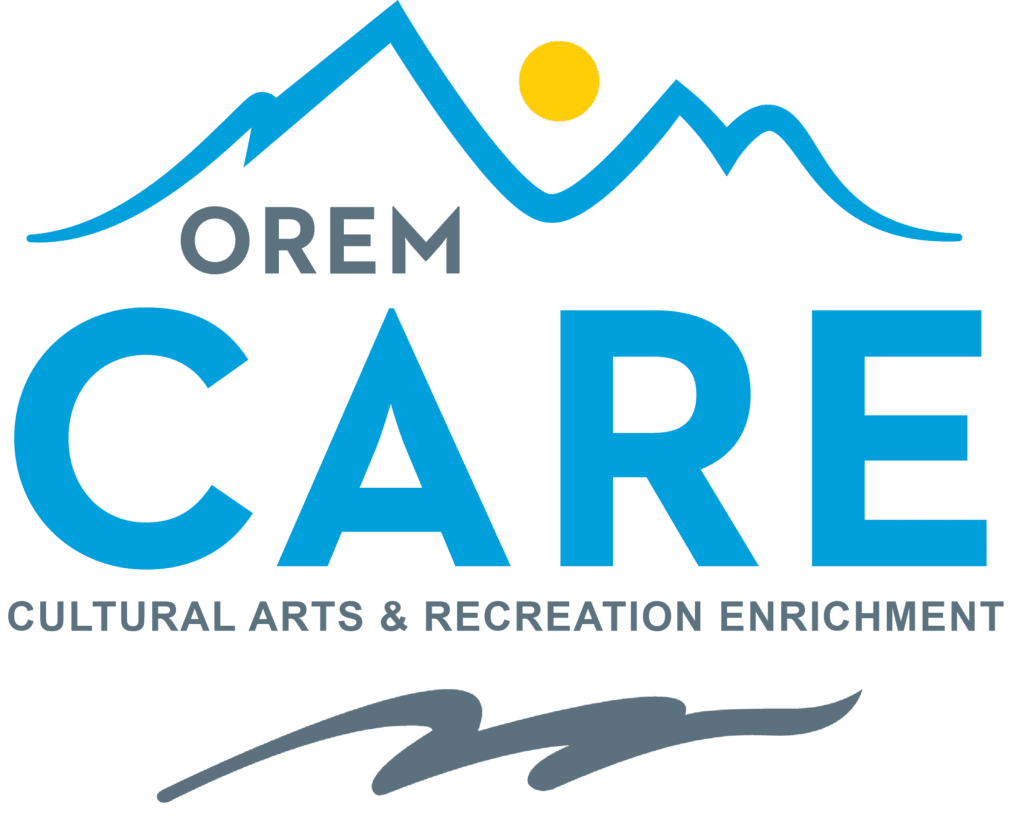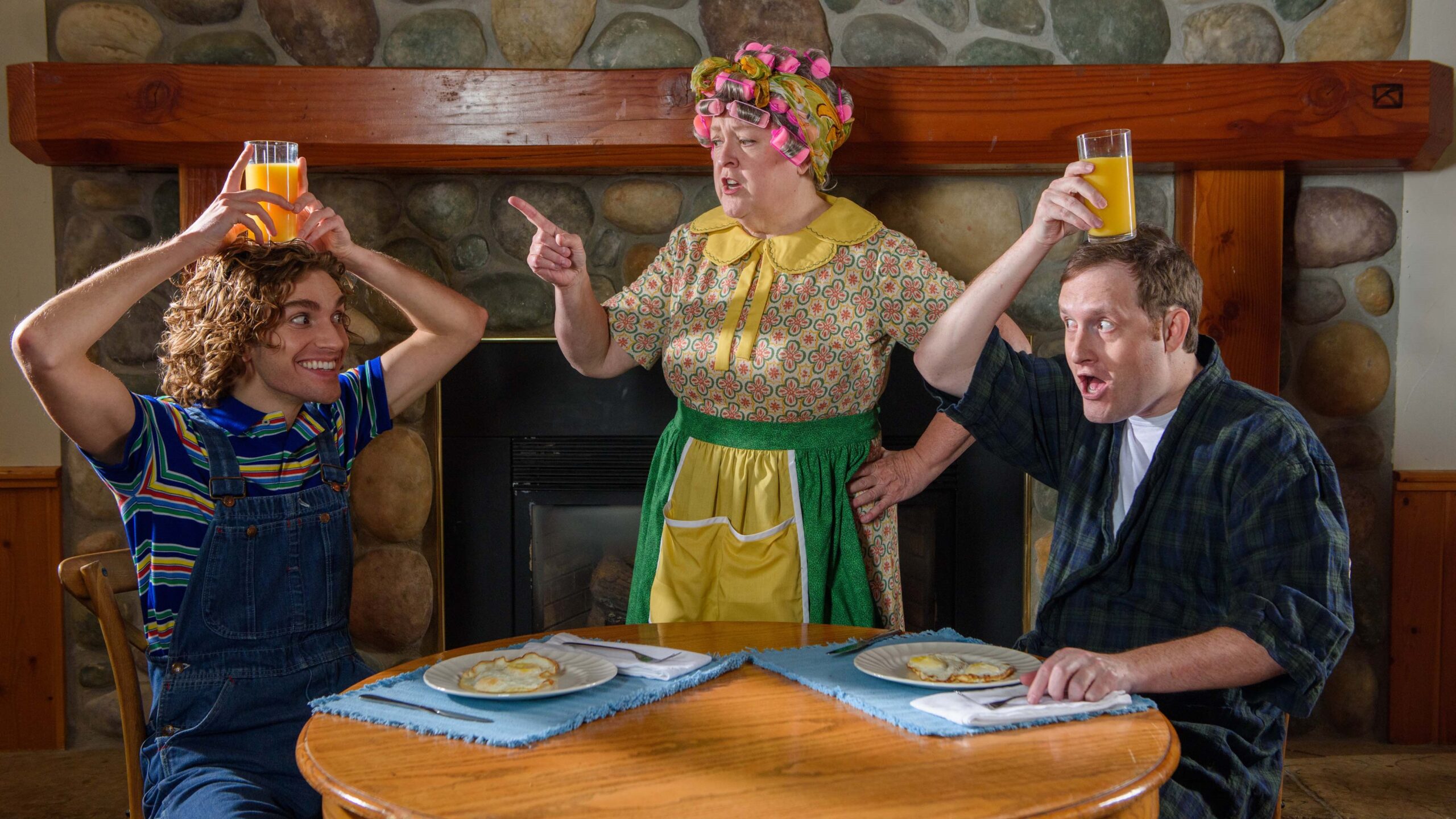OREM — Described on Instagram as an “uproarious comedy classic” that will make you “laugh till you cry,” Hale Center Theater Orem’s The Foreigner is marketed as a lighthearted, uplifting, and generally wholesome show, considering the theater’s esteemed reputation. To many people, the production may appear as such, judging by the indeed “uproarious” laughter I heard from fellow audience members on opening night. While this play is a comedy, its purpose is to do more than make people laugh, and I am afraid that without some clear and intentional adjustments, this production will harm this community much more than help it.
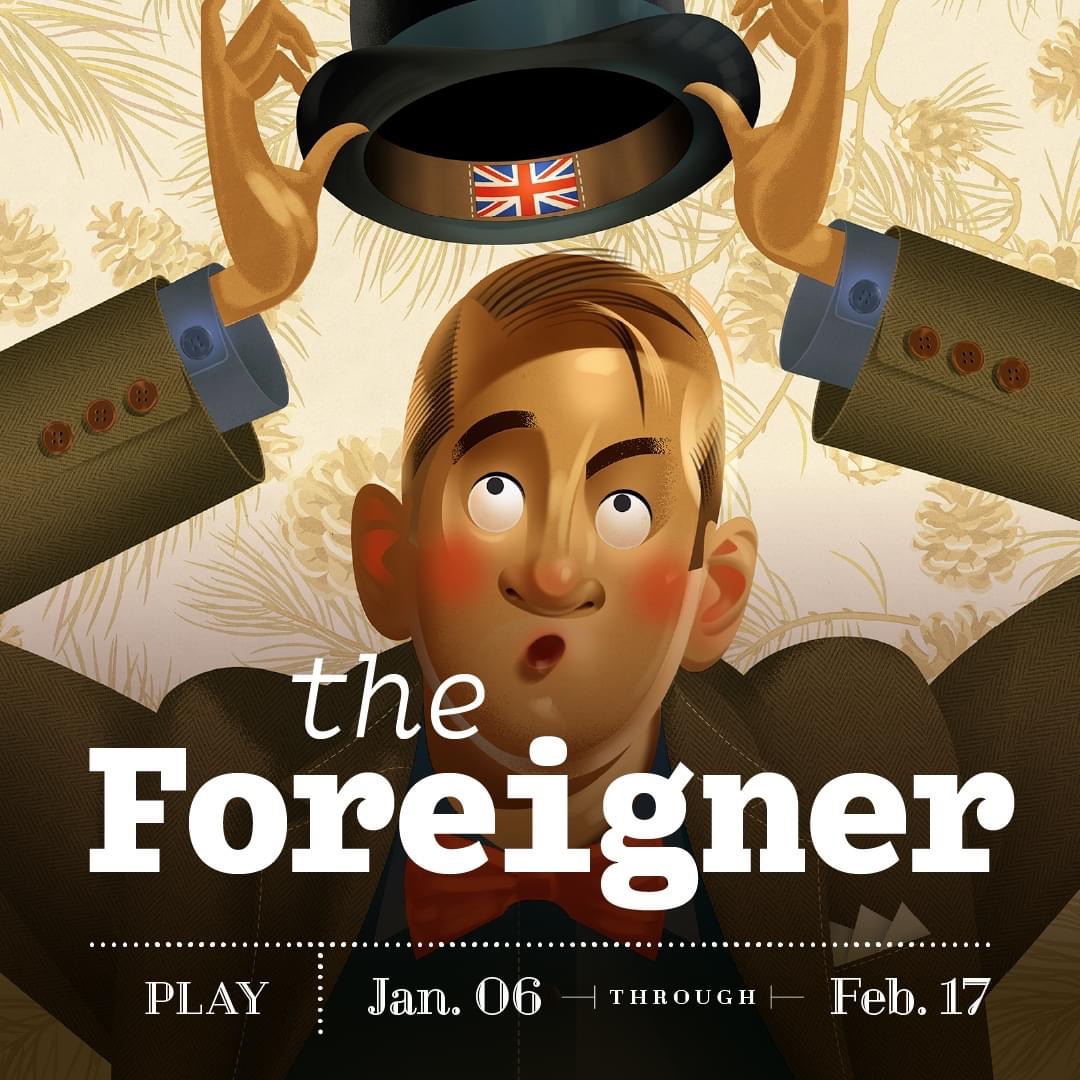
A dark, farcical comedy, The Foreigner by Larry Shue takes place in a fishing lodge in a rural county in Georgia. When two Englishmen — the charming Froggy and the terribly shy Charlie — arrive as guests, Froggy claims that Charlie is a foreigner from an exotic country and that he does not speak English. The residents of the household take delight and begin to poke fun and mock Charlie as a foreigner. Yet, they also let slip some valuable secrets — including some ties to the Klu Klux Klan.
This production has a lot going for it. HCTO has assembled some incredibly talented people for this show. The set design by Carter Thompson looks exactly like the many gas stations, homey restaurants, and family-owned stores that grace rural Utah. Lighting design by Ryan Fallis is both cozy and powerful, at times giving a snug, golden, inviting ambiance — and at other times operating as a terrifying, stark-white symbol that danger is coming. I was especially impressed by the carefully crafted and creative props by Linda Hale, from the detailed dusty bomb trigger to the real fried eggs that were cut, eaten, and delightfully launched across the stage.
The actors in this production are equally as skilled and give committed performances. Greg Larsen and Brett Myers as the Englishmen Charlie and Froggy (respectively) provide playful performances right from the start, both with rich, animated voicework. Larsen is carefully calculated in his movements, from the simple shake of his head to the slight shuffle of his feet. This contrasts beautifully with Myers’s bouncing, jovial countenance. Wade Johnson as Owen Musser provides an especially compelling performance with admirable commitment that made me physically cringe. This fit his character’s true, horrific identity, which Johnson slowly reveals more and more throughout the production, providing a chilling performance.
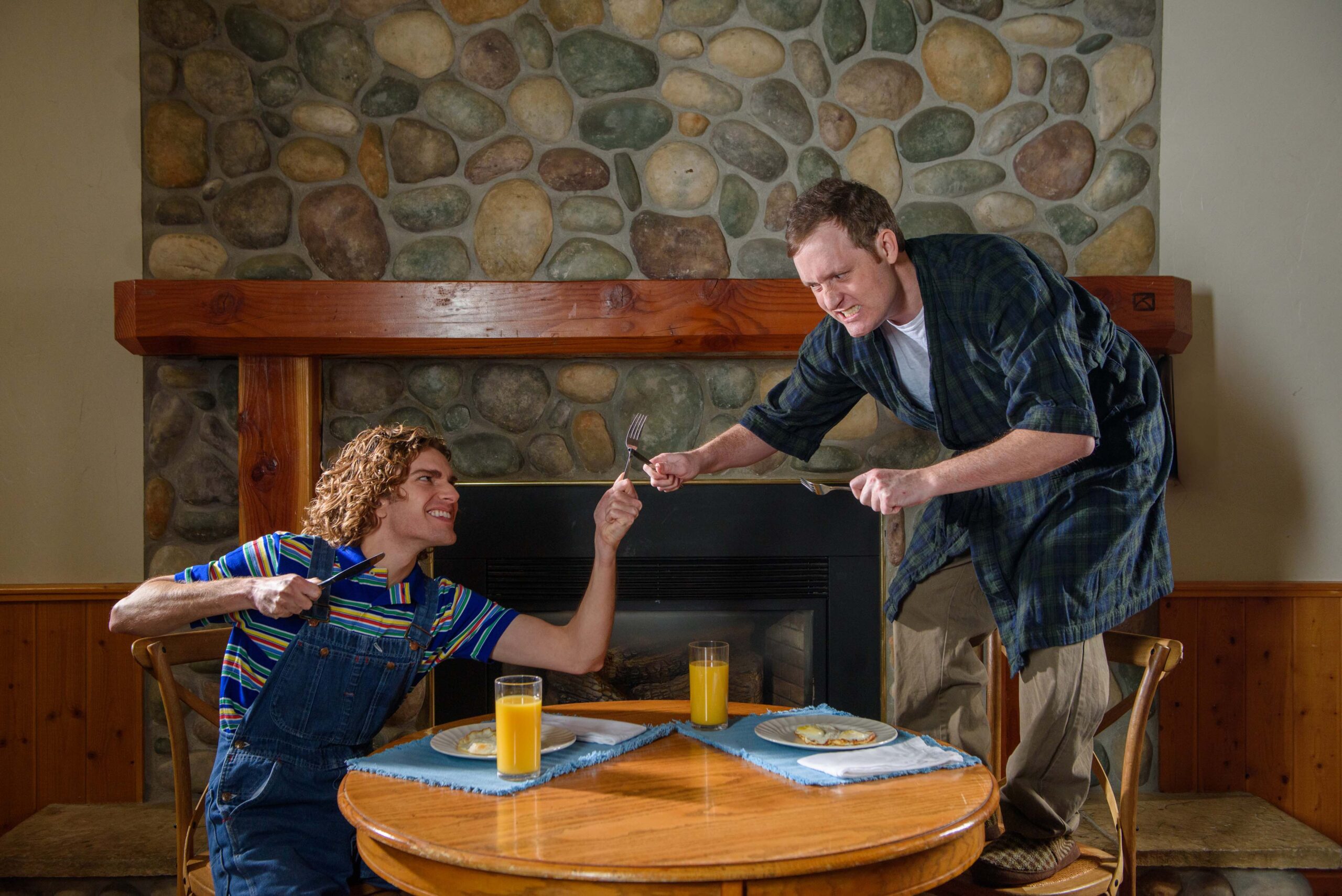
Ian Webb as Ellard is a crowd favorite, youthfully moving through the space with bright eyes and such endearingly innocent physicality that is impossible not to love. Kelly Pulver as Catherine is believable and grounded throughout her performance, providing surprising moments of real sincerity in this dark comedy. Luone Ingram as Betty Meeks perfectly and honestly portrays the loving yet often incredibly offensive members of the older generation I see a lot of here in Utah: well-meaning, but also quite ignorant.
The biggest problem with this production is that much of the racism and offensiveness of the characters’ remarks and behaviors is glossed over, especially in act one. In this production, the blatantly racist remarks and actions are presented more as charming quirks, not deeply rooted character flaws. For example, when Catherine is reading the newspaper about events occurring with the Klu Klux Klan, she delivers a remark about them cutting off various limbs from people in a way that caused laughter from the audience. However, when the production more clearly communicates the problems with the bigotry being presented on stage, these moments feel true to the intent of the script. Charlie has an excellent moment of this in the second act when he says something along the lines of, “Oh? My speak is wrong?” and turns the tables on Owen. There need to be more moments like this in the first act. Otherwise, the audience is encouraged to just enjoy and laugh off the racism. Additionally, many critical details (specifically the references to Robert E. Lee and the Klu Klux Klan,) felt skipped over. These moments deserve extra emphasis so that the audience can understand the kind of people they are watching, and not just laugh with them. It needs to be clearer to the audience what behaviors are not appropriate. There is a real danger in this production appearing to cover (or even promote) the very problems this play is trying to expose.
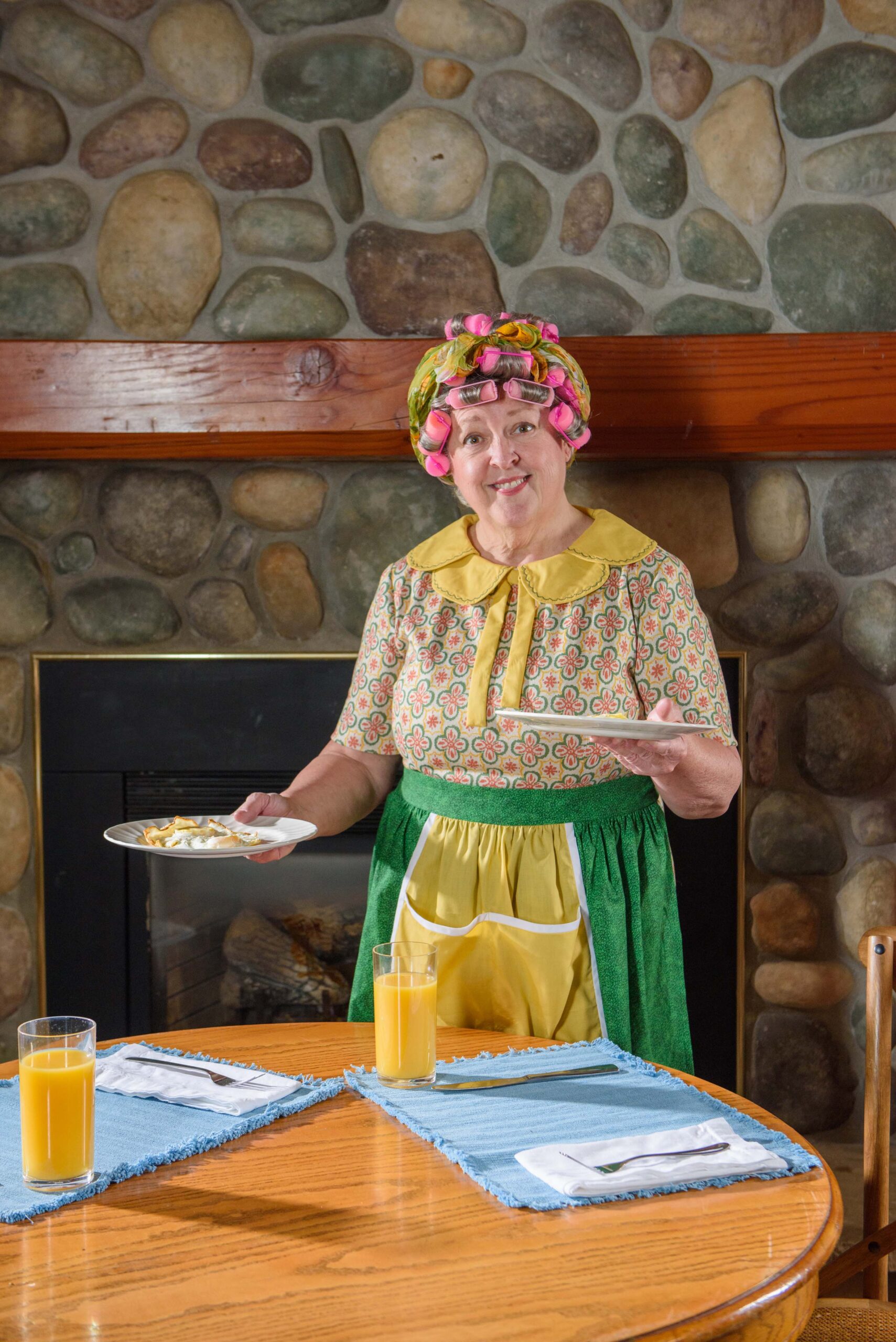
Director Ben Henderson writes in his director’s note about the importance of “play” and “pretend” in theater. While I completely agree with this sentiment, theater can be so much more than just fun, especially when a play has an important message. Throughout time, theater has been about educating and inciting change. It is about creating empathy, which Shue’s script is so desperately trying to do. The script is pleading with its audience to have empathy for “foreigners” among them. When a production team has the incredible, sacred privilege of presenting a piece that (literally) presents horrific figures and themes, the artists need to treat this opportunity with respect and extreme sensitivity. It should be an opportunity to educate, not make a current, heartbreaking issue even worse.
Unless this production grapples with the seriousness of the script’s message, I would not recommend it to anyone. While some of the slapstick humor and miscommunications are genuinely funny, the blatant racism on stage that is papered over and sometimes even winked at is not worth the laughs. HCTO’s The Foreigner needs to intensely clean up the messaging being sent into the community, especially in act one, or this production will just enforce the detrimental racial discrimination that our country already struggles with.
[box]The Foreigner plays nightly (except Sundays) at 7:30 PM, with additional matinees at 4 PM on Saturdays, through February 17 at Hale Center Theater Orem (225 West 400 North, Orem). Tickets are $31-49. For more information, visit haletheater.org.[/box]
Editor’s note: This review has been revised by the author from its original version.
